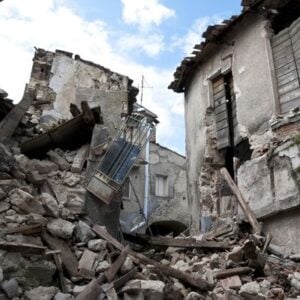In Namibia, 10-year-old Andra Chigova from Windhoek is proudly encouraging other girls to get vaccinated against the human papillomavirus (HPV), the leading cause of cervical cancer. She recently received her HPV shot as part of the country’s national vaccination campaign launched by the Ministry of Health and Social Services in August 2025, with support from the World Health Organization (WHO) and partners. The campaign aims to reach about 232,000 girls aged 9 to 14 across all 14 regions, and within its first two weeks alone, around 65,000 girls were vaccinated.
For Chigova’s family, the campaign brings hope. Her mother, Temptation Chigova, highlighted the importance of protecting her daughter from cervical cancer, a disease she has seen devastate women, families, and communities. She expressed gratitude to the Namibian government for taking steps to ensure future generations are safeguarded from the suffering caused by this preventable illness.
Globally, cervical cancer is the fourth most common cancer among women, with 660,000 new cases and 350,000 deaths reported in 2022. Nearly 94% of these deaths occurred in low- and middle-income countries. In Namibia, the disease continues to be a major public health challenge, with about 350 new cases and over 200 deaths each year. To tackle this, the government has aligned with WHO’s Global Strategy to Accelerate the Elimination of Cervical Cancer, which calls for 90% of girls to be vaccinated against HPV by age 15, 70% of women to be screened at least twice in their lifetimes, and 90% of women with cervical cancer to have access to treatment.
Local health workers are playing an important role in addressing misinformation and building trust in the vaccine. At Groot Aub Clinic near Windhoek, nurse Ramona Mbadeka explained that some parents who initially hesitated later agreed after receiving accurate information during awareness sessions. The vaccine remains voluntary, but health authorities are encouraging families to make informed choices based on facts rather than fear.
Namibia’s Health Minister, Dr Esperance Luvindao, emphasized that the HPV vaccine is safe and effective, stressing the urgent need to protect women from a preventable disease that continues to claim lives. WHO has supported the campaign by strengthening planning, logistics, training, and community engagement while also providing technical support for the National HPV Vaccine Introduction Plan and communication strategy. These efforts included training health workers, developing educational materials, and monitoring media to counter misinformation.
WHO Representative in Namibia, Dr Richard Banda, praised the initiative as a milestone in the country’s public health journey, noting that the campaign will prevent infections and save lives. For girls like Andra Chigova, the campaign represents more than a statistic—it is a promise of a healthier, brighter future. With a smile, she shared her relief and happiness at being protected, encouraging her peers to do the same.







